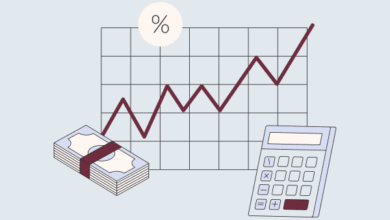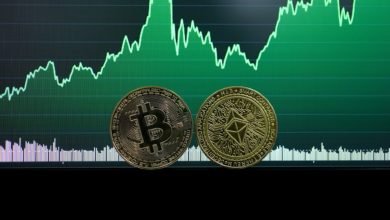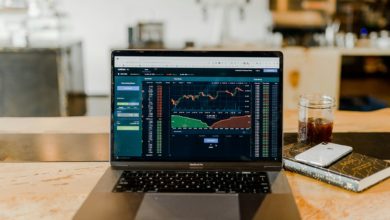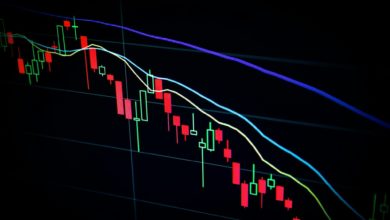Stock Market Today: Nasdaq Leads Gains as Intel Soars on Nvidia Deal, Fed Signals More Cuts

US stocks rose on Thursday, extending gains after the Federal Reserve cut interest rates and hinted at more easing to come. The Nasdaq Composite surged more than 1.1%, while the S&P 500 rose 0.6% to fresh record levels. The Dow Jones Industrial Average gained 0.3%, keeping all three indexes on track for record closes.
Investors welcomed a wave of positive news, from Nvidia’s lifeline investment in Intel to signs of cooling inflation that support the Fed’s policy pivot. Sentiment improved despite Fed Chair Jerome Powell’s warning that the path forward is fraught with risks as policymakers try to balance high prices with a slowing labor market.
Market Movers:
- Intel (INTC) — Shares soared more than 20% after Nvidia announced a $5 billion investment and a plan to co-develop new chips. The deal is seen as a lifeline for Intel, which has struggled to compete in the AI and high-performance semiconductor markets. Investors bet the partnership could help revive Intel’s relevance in the sector.
- Nvidia (NVDA) — Climbed nearly 4% on optimism around its Intel deal. The investment secures additional production capacity and expands Nvidia’s role in the data center and PC market. Traders viewed the move as another sign of Nvidia’s aggressive push to cement leadership in AI.
- PayPal (PYPL) — Shares rose after the company struck a deal to use Google’s AI tools. The partnership aims to enhance fraud detection and streamline the e-commerce checkout process. Investors see it as a positive step for PayPal, which has faced slowing growth.
- Alphabet (GOOGL) — The stock edged higher thanks to the PayPal agreement, which showcases the reach of its AI products. The move highlights Google’s ability to monetize artificial intelligence beyond its core search business. Analysts said it reinforced confidence in Alphabet’s cloud growth.
- CrowdStrike (CRWD) — Shares jumped after the cybersecurity firm raised its revenue outlook above forecasts. Strong demand for its Falcon platform fueled the bullish update. Investors welcomed the results as proof of resilience in the cyber sector.
- Darden Restaurants (DRI) — Stock fell after the Olive Garden parent missed profit expectations. Management warned that rising costs could pressure earnings ahead. The cautious guidance weighed on sentiment across restaurant names.
- Cracker Barrel (CBRL) — Shares dropped following weak results and a lowered forecast. Executives blamed the fallout from recent rebranding efforts that hurt customer traffic. Investors grew more concerned about the company’s ability to stabilize.
- Nucor (NUE) — Shares slipped after the steelmaker issued a downbeat outlook. Management cited weakness across construction, automotive, and energy markets. The warning raised broader concerns about slowing industrial demand.
Fed Signals and Market Response
The Federal Reserve’s decision to cut its benchmark rate by 25 basis points was widely expected, but its updated projections confirmed that two more cuts are likely before year-end. Stocks initially wavered after Chair Powell stressed that “there is no risk-free path” for policymakers navigating high inflation and labor market weakness. But investors quickly shifted their focus to the broader message: the Fed is prepared to continue easing, supporting both equities and risk assets.
Bond markets reflected the mixed sentiment. Treasury yields rose slightly, a counterintuitive but common move following a rate cut, as investors recalibrated expectations for future policy moves. Mortgage rates ticked up in response, though they remain near their 2025 lows. For equity markets, the key takeaway was the Fed’s willingness to ease despite lingering inflation concerns, bolstering risk appetite.
Job Market Concerns
Thursday’s jobless claims report showed a slight improvement after a surge in filings the prior week, but overall trends point to a cooling labor market. Hiring has slowed sharply as demand for workers eases and job openings decline. Economists say the data reinforces the Fed’s difficult balancing act: cutting rates to support growth while still confronting inflation pressures that remain above target.
Slowing labor market momentum has been a recurring theme in recent months, adding urgency to the Fed’s pivot. Investors are closely watching whether cooling employment will filter into weaker consumer spending, a critical engine for the US economy. For now, Wall Street is betting that easing policy will provide a cushion, but cracks in the labor market remain a key risk heading into the fall.
Global and Political Developments
President Trump’s state visit to the UK added another layer of intrigue for markets. Trump met with tech and finance leaders at Windsor Castle ahead of his meeting with Prime Minister Keir Starmer. Discussions focused on trade, AI collaboration, and digital assets, with US tech giants like Microsoft and Nvidia pledging further investment.
Meanwhile, Trump is preparing for a high-stakes call with Chinese President Xi Jinping on Friday, with TikTok and tariffs expected to dominate the agenda. Investors are cautiously optimistic about a resolution, but the geopolitical backdrop remains volatile. Trade disputes, regulatory shifts, and political pressure on the Fed all hang over the markets even as stocks push to record highs.
Looking Ahead
Markets will likely stay volatile as investors digest the Fed’s path forward, new data on inflation and jobs, and ongoing geopolitical developments. Intel and Nvidia’s deal has injected optimism into the chip sector, while crypto assets are enjoying momentum from both policy easing and regulatory clarity. Still, uncertainties around labor markets, tariffs, and global politics could quickly test investor confidence.
For now, Wall Street is leaning into the Fed’s support and betting on resilience in risk assets. The next major catalysts will be earnings from FedEx after the bell and Trump’s call with Xi Jinping, both of which could shape sentiment into the end of the week.




